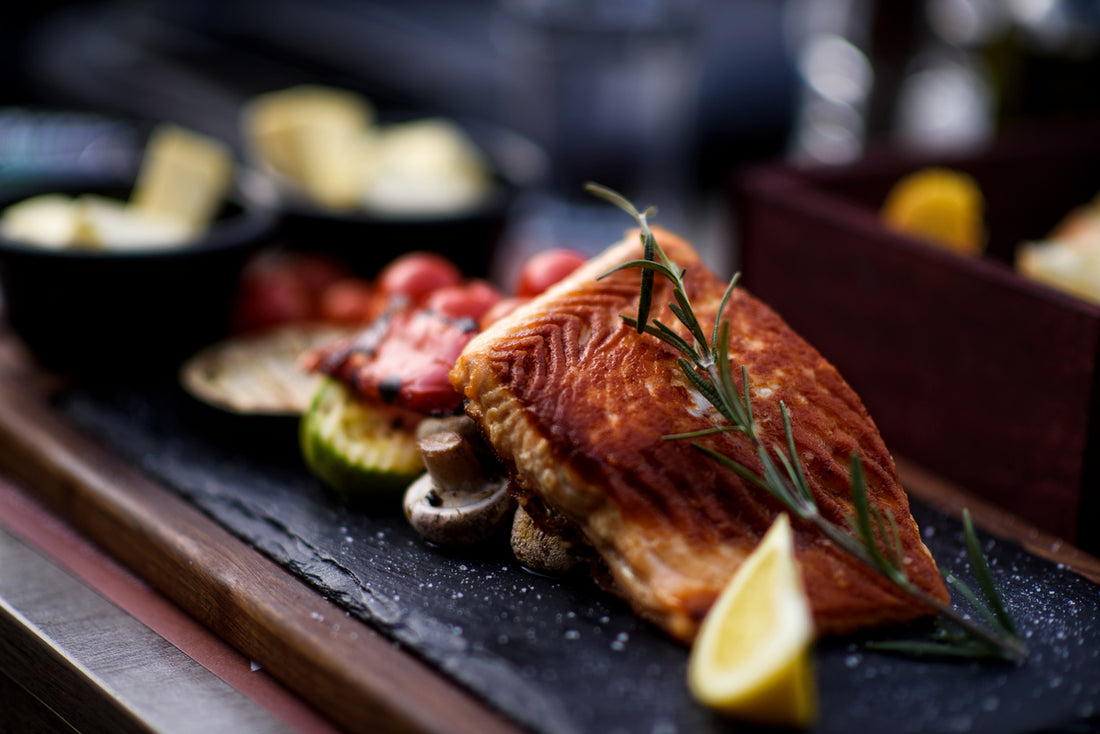
Healthy Grilling
Share
If someone asked you to talk about American culinary traditions, you would most certainly include the art of grilling. Originating in the southern United States, barbecue culture has become so massive that cooking on the grill has become incredibly popular across the entire country.
For many people, the word “barbecue” spurs thoughts of high-fat foods, such as pulled pork, brisket or glazed ribs. But this doesn’t mean that all barbecue foods are bad for you. There are many ways to use the grill to make healthy meals, and Enzymedica is here to help. (Though if you're having a high fat BBQ cheat meal, you might want to check out Enzymedica's Lypo Gold™ for digesting the fat!)
TIP 1: Be mindful about your meat
If you plan on grilling meat, the type you choose is one of the most important factors in determining how healthy your meal will be. When possible, you should choose white meats like chicken or turkey instead of red meats like beef or pork.
White meats are generally leaner than red meats, containing less fat and calories but still featuring high amounts of protein. This makes them an ideal choice for those looking to manage their weight or minimize their intake of saturated fats.
Enzymedica recommends that you marinate white meat before preparing your meal. Marinating can naturally tenderize your meat and add exceptional flavors at the same time.
You can also grill fish as a healthy alternative to red meat. Salmon, tilapia, shrimp, halibut or tuna steaks are just a few examples. Experiment with different herbs and spices to see which flavors you prefer with different types of fish.
TIP 2: Don’t neglect your side dishes
It can be easy to forget about making your side dishes healthy, but it’s important not to neglect them. Traditional barbecue sides, like mac and cheese or potato salad, are high in calories, saturated fats and simple carbohydrates, which don’t leave you very satisfied.
Instead, go for side dishes that are composed of complex carbohydrates, which digest more slowly than their simple carbohydrate counterparts. These types of foods are generally high in fiber and micronutrients. For example, vegetables can be grilled and served as a side. A common way to do this is to make skewers with different vegetables and meat like shrimp or chicken and grill them.
Some other options include sweet potatoes, brown rice, grilled zucchini, bean salad or quinoa.
Sometimes, the high amount of fiber in these nutrient packed healthier side options can cause indigestion. We recommend VeggieGest™ or BeanAssist™ as a solution to this problem.
TIP 3: Make just the right amount of food
Popular culture has taught us that it’s normal to make too much food when we’re having a barbecue. Cooking TV shows often show pit masters making enough food for a small army, and it’s common to see commercials featuring a grill absolutely packed with burgers.
Bulk grilling for a party or event is one thing, but for daily meal preparation, it’s best to make just enough for your needs. There’s nothing wrong with leftovers, but it’s also very easy to overeat when there’s too much food, which may result in bloating or digestive discomfort.
Some people find it convenient to “meal prep.” This is the practice of cooking bulk amounts of food one day, and then separating the food into proper meal-sized portions and save them for the rest of the week.
With these tips, barbecue-style food doesn’t have to negatively impact your health goals.

